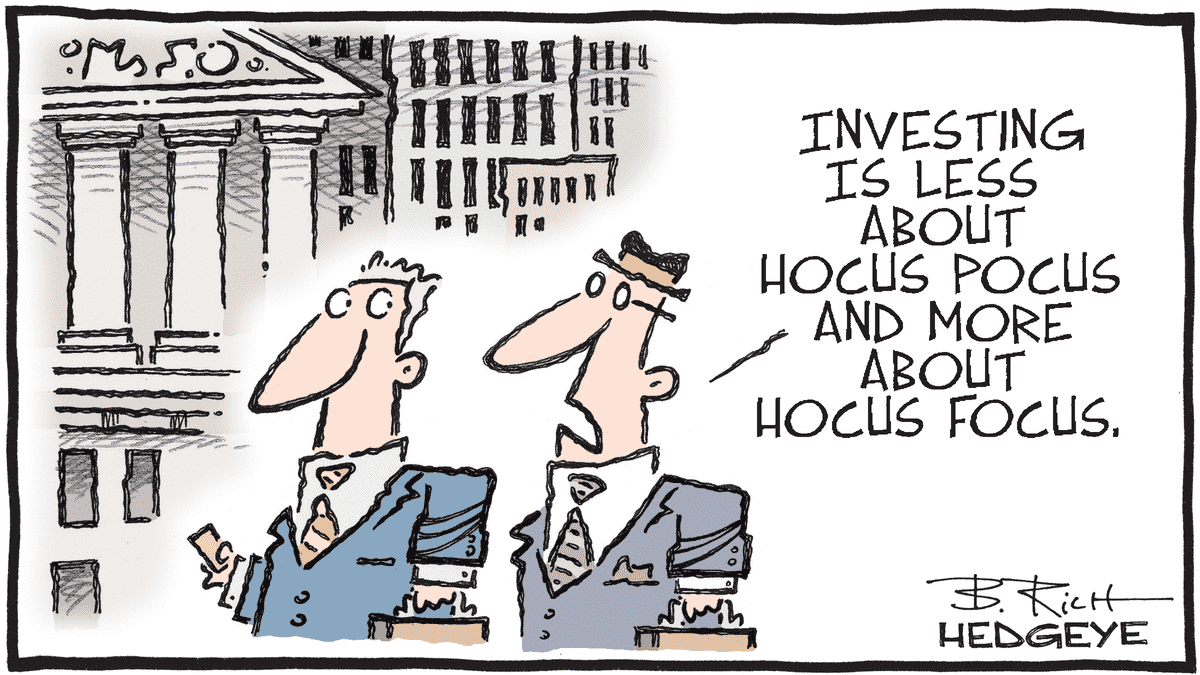
The Law of Maximum Boredom
Yes, okay, the S&P and the Nasdaq 100 are at all-time highs. The American benchmark index is breaking records for the second consecutive session. This should make us happy and have us popping champagne. Yet, we still feel profoundly bored. Not to say that we’re “bored out of our minds,” as the younger generation might put it.
This morning, I have the feeling that we’re in an interstellar void of news. There’s nothing new, just rehashing the same stories we already know. We’re going in circles over tariffs that serve every purpose and none at the same time, and we no longer know what to think about war or peace in Ukraine. It’s dragging on.
Sleep or Invest, That Is the Question
When you do the job I do, it’s important for things to happen—profit warnings, panic crises, doubts about one theme or another, like the arrival of DeepSeek the other day. It’s crucial for tension to be at its peak, for volatility to be under pressure, and for at least some part of the wonderful world of investing to be in doubt.
The problem is that, for the past few days, we’ve fallen into some kind of “space-time vortex,” giving the impression that nothing is happening. It feels like we’re in a parallel world where it’s hard to find arguments to go up or down. Sure, as I mentioned in the introduction, the S&P 500 is at an all-time high, and European indices have never been in better shape—well, except for yesterday. But there are very few pieces of news with the potential to be a real game-changer. Even though people are more or less convinced that “everything is going just fine,” it still feels like we’re running out of fuel to go higher, while at the same time, we can’t find any real reasons to go lower.
This morning, I feel stuck in the middle of nowhere. Sure, things are happening here and there—Intel speculation, Palantir getting hammered because the CEO changed shareholder pact rules to allow himself to cash out part of his shares and pocket $1.2 billion. That, plus the fact that the Pentagon’s budget—a major Palantir client—is about to get a haircut. There are also some upgrades and downgrades making waves, like Jefferies’ upgrade on STM yesterday in Europe, which sent the stock soaring by nearly 8%. Or Bumble’s questionable numbers and terrible forecasts that sent its stock plunging 30%, making traders realize the stock has lost 92% of its value since its February 2021 IPO. And then there’s Etsy, which tanked 10% for missing the quarter from analysts’ perspective.
But overall, nothing is making the market vibrate. You either have to be on the right stocks, or you’re bored out of your mind. The stock market just isn’t interesting anymore. At least, for now.
Ukraine and Tariffs
Of course, you might say, “But there’s plenty going on with tariffs, and that should shake things up! And what about Ukraine?” Yes, that’s true. But ever since the first tariff shock two weeks ago and the immediate reversal via border agreements with Canada and Mexico, we’ve understood that this is just a diplomatic bargaining tool. Before a wave of tariffs has any real impact on the U.S. economy, it will take a long time—if it even happens at all.
As for Ukraine, it’s mostly a political and geopolitical chess game between Europeans and Americans. Trump wants to rebuild ties with Russia, while Europe wants to maintain its legitimacy in the conflict. Not to mention that this allows them to justify their military spending like never before—taking their cut along the way without anyone saying a word because, “you understand, war is at our doorstep.”
So, the markets are stuck in a sort of cocoon—unable to rise much further because we’re already sky-high and valuations aren’t exactly cheap, but also unable to drop significantly because the U.S. economy remains strong. Europe will recover once the war ends, and all it takes is China kicking back into gear to align everyone. In short, we’re floating in the middle of nowhere—except at an extremely high altitude—and no one knows what to do, or rather, no one dares to do anything.
On top of that, we’re in that awkward, quiet week—the one between the end of earnings season and the start of a new wave of macroeconomic data. A week where most of the companies reporting results don’t interest anyone anymore. There aren’t any significant economic figures, and since the arrival of Trump 2.0, no one cares about macroeconomics anyway—he’ll just multiply the loaves and walk on water. The usual generic arguments for buying or selling don’t excite anyone anymore. I’d say it’s too quiet, and I don’t really like that much, because I prefer when it’s a bit more or less not so calm.
Anyway…
Yesterday, U.S. markets closed at an all-time high, while Europe took a beating—with experts unable to agree on why. Some blame tensions over Ukraine, yet those same tensions fueled the rally the day before because of increased defense spending. Others point to interest rate worries, but European stock markets usually don’t care much about movements in the Bund or the OAT. To put things into perspective, the last time I mentioned the Bund or the OAT in my market commentaries was during the Greek crisis at the beginning of the last decade.
So, maybe European markets deflated simply because they had risen too fast, too high, and too strongly—only to realize there’s no solid justification for such gains. Suddenly, trading in this environment becomes incredibly dull, and it might just be easier to reduce positions and come back next week when Nvidia releases its earnings—so we can finally talk about AI again.
Because let’s be honest—the only thing that has truly excited us in recent months is Artificial Intelligence. Not Trump’s tie color, Musk’s latest child, or which U.S. football team won the Super Bowl.
We need to bring back some excitement, and this week—the second-to-last of February—is really boring, especially if you don’t understand the war in Ukraine or don’t care about tariffs.
And now in Asia???
By the way, this morning in Asia, markets are in the red: Japan is down 1.3%, Hong Kong is down 1.1%, and China is doing nothing. And the fun part? Each market has its own reason for moving the way it does. If you’re wondering why Japan is dropping, it’s because, quote: “Investors are worried about the somewhat high level of U.S. interest rates and the potential impact of tariffs on Japanese exporters.”
Funny how U.S. rates haven’t changed in two months, yet TODAY it suddenly becomes a problem for Japan. Maybe it’s because of yesterday’s FOMC Meeting Minutes, but we’ll get to that in 30 seconds…
Elsewhere, Hong Kong’s drop is blamed on, quote: “waning interest in Artificial Intelligence.” In other words, AI stocks in China and Hong Kong had been rallying for three days based on U.S. sector recommendations, and now, traders have taken their profits and cashed out. A very “long-term” strategy—lasting all of three days.
And then there’s China, doing nothing, waiting for something to happen.
Oil is at $71.50, gold is at $2,960, also at an all-time high, and Bitcoin is trying to break $97,000—attracting about as much interest as I have in reading War and Peace in Serbo-Croatian, starting from the end.
Now, let’s talk about the FOMC Meeting Minutes.
And about the few tidbits that might make us think in this maximum boredom environment.
Last night, the Fed published the written report of its late January FOMC Meeting. It expressed concerns about trade tensions and reciprocal tariffs with the U.S.—but let’s not get too excited, because this text was written on January 29, back when Trump hadn’t done anything yet.
Fed members believe that policy changes could impact inflation, the economy in general, and the labor market. They also observed that water is wet and fire burns—and that if you stick your hand in a fireplace to grab a burning log, it will hurt.
In short, the Minutes are just a summary of everything we already know, of what Powell already told Congress last week, and of what his buddies have been saying in the press for three weeks.
One thing is absolutely certain: this report does nothing to increase the odds of a rate cut before July.
Inflation is a problem, and Powell would love for it to go down—but he has no idea how, since he can’t raise rates anymore and Americans keep spending like crazy on services, the one part of the economy the Fed can’t control.
But honestly?
WHO CARES about the Minutes, inflation, or Powell’s mental state?
What we want is for Artificial Intelligence to go up and for indexes to break records.

The Magnificent Seven Are Less Magnificent
Normally, at this point in the column, I’d talk about the news of the day. But as I mentioned earlier—unless you’re a fan of the Russia-Ukraine conflict or the ongoing disputes between Europe and the U.S.—there’s really not much to say. Well, that and Palantir getting wrecked last night, but we already covered that. So instead, I’ll take a moment to talk about the Magnificent Seven.
For the past two years, it’s been impossible to escape the “Magnificent Seven”—the major tech giants that fueled the latest bull cycle, now accounting for nearly a third of the S&P 500. Apple, Microsoft, Amazon, Alphabet, Tesla, Meta, and Nvidia have captivated the world for months and even years, yet they now seem to be in a bit of a slump.
Since the start of the year, this group has gained just 1.3%—which is pretty weak, especially when compared to the DAX, which is up 13.5% over the same period. Even airline stocks are performing better than the Magnificent Seven, despite all the bad press around plane crashes.
That said, the S&P 500 is up 4.46% since January 1st, meaning that markets are rising EVEN WITHOUT the Magnificent Seven, which had been the driving force in recent years. The resilience of the market is nothing short of incredible. Investors refuse to throw in the towel despite the growing negative sentiment, concerns about tariffs and inflation. On the contrary, according to the latest stats:
- Out of the 500 companies in the S&P 500, 319 are up since the start of the year
- And 300 of those 319 are outperforming the Magnificent Seven
That’s impressive. The only real concern is that at some point, investors might decide to start selling off the Magnificent Seven, which still account for 30% of the S&P 500’s weight. The risk seems limited in the short term, given that six of them have already reported earnings, with only Nvidia left to report next week.
Yesterday, Apple announced its new iPhone SE, which virtually no one cared about. The stock barely moved, gaining 0.2% after the announcement.
The Numbers and The Takeaway
I’ll be honest—we’re not living through the most exciting week of the past year. In fact, I’m not even sure you’ve made it this far into the article, because let’s face it—this isn’t exactly thrilling.
Today, we’ve got:
- Germany’s PPI
- U.S. Jobless Claims
- The Philly Fed
- Oil inventories
Hopefully, things pick up next week, and we get back some enthusiasm—even though I’ll be on vacation next week.
Enjoy your day and, honestly, do something other than finance—because some days, it’s just better to focus on something else.
This is one of those days.
Have a great day, and see you tomorrow!

